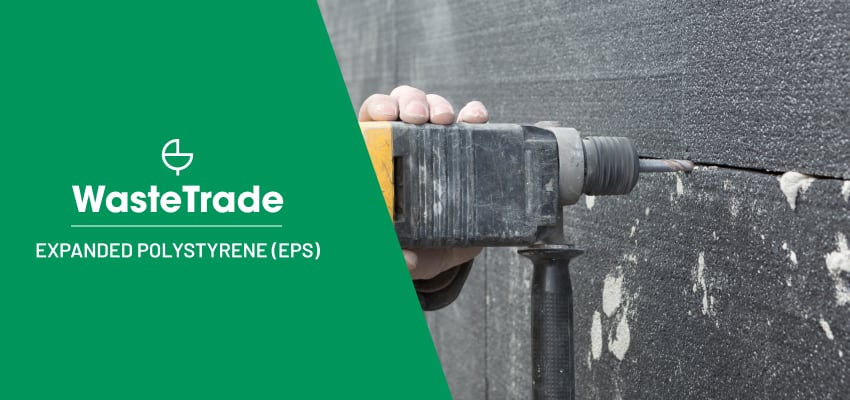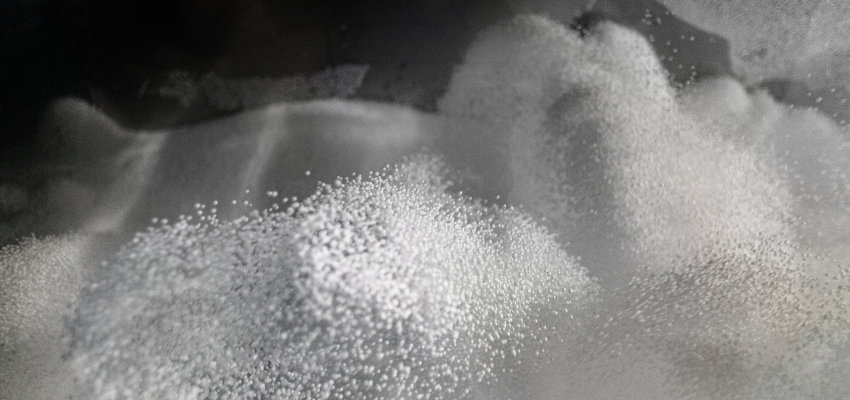Expanded Polystyrene (EPS)

Expanded Polystyrene (EPS) is a type of plastic foam that is commonly used in a variety of applications due to its excellent insulation properties and low cost. EPS is created through the expansion of polystyrene beads, which are then molded into various shapes and sizes. EPS foam is a lightweight, closed-cell foam that is known for its insulating properties, as well as its durability and resistance to moisture and other environmental factors. It is also an excellent choice for packaging and cushioning materials due to its ability to absorb shocks and impacts.
EPS Properties

Expanded Polystyrene (EPS) is a lightweight, rigid plastic material with unique properties that make it suitable for various applications across industries. EPS is a closed-cell, expanded foam made from polystyrene beads. The manufacturing process involves heating the polystyrene beads, which causes them to expand and fuse together to form the foam.
EPS has excellent insulation properties, low thermal conductivity, and high compressive strength. It is also lightweight, durable, and resistant to moisture, chemicals, and UV radiation. EPS can be made in different densities, depending on the application and desired properties.
EPS Use

EPS foam is widely used in a variety of applications, including building insulation, protective packaging, and food packaging. In the building industry, EPS foam is used as insulation in walls, roofs, and floors to improve energy efficiency and reduce heating and cooling costs. It is also used as a protective material in shipping and packaging, where its ability to absorb impacts and cushion delicate items is highly valued. In the food industry, EPS foam is used as a packaging material for perishable items, such as fruits, vegetables, and meats, to protect the contents from damage and maintain the quality of the food. Additionally, EPS foam is used in the production of foam boards, floats, and other products for the boating and fishing industries.</p
EPS Recycling

EPS foam is a recyclable material, but the recycling process can be challenging due to its low density and lightweight nature. EPS foam can be recycled into new foam products, such as picture frames, crown molding, and insulation. The recycling process involves collecting the used EPS foam, breaking it down into smaller pieces, and then melting it to create new foam products. Many cities and municipalities have recycling programs specifically for EPS foam, and some companies that produce EPS foam products offer take-back programs for their used products. The recycling of EPS foam helps to reduce waste, conserve resources, and decrease the amount of pollution and energy required to produce new foam products.
EPS Applications

EPS has numerous applications across various industries. In the packaging industry, EPS is used to make protective packaging, such as foam blocks and trays, due to its shock absorption and cushioning properties. In the construction industry, EPS is used as insulation for roofs, walls, and floors, as well as for lightweight fill material. In the automotive industry, EPS is used in the production of car parts, such as door panels and interior trim, due to its lightweight and insulating properties. EPS is also used in the arts and crafts industry, as it can be easily cut, shaped, and painted.
EPS Recyclability
EPS is recyclable, but the recycling process can be challenging due to its low density and volume. EPS can be recycled into new EPS products or other materials, such as picture frames, garden furniture, and coat hangers. The recycling process for EPS involves compacting the material into blocks, which are then melted and remoulded into new products. Recycling EPS can help reduce waste, save resources, and decrease greenhouse gas emissions. Additionally, recycling EPS can help prevent pollution and protect the environment.
Recycle Expanded Polystyrene (EPS) With WasteTrade
WasteTrade can assist businesses that wish to recycle their EPS waste streams. This platform links businesses with waste management companies specialising in plastic recycling. By enrolling with WasteTrade, businesses can access valuable resources and information to gain an understanding of the recycling process and make informed decisions. WasteTrade provides optimal recycling solutions for your EPS waste streams. To benefit from these resources, sign up with WasteTrade today.
